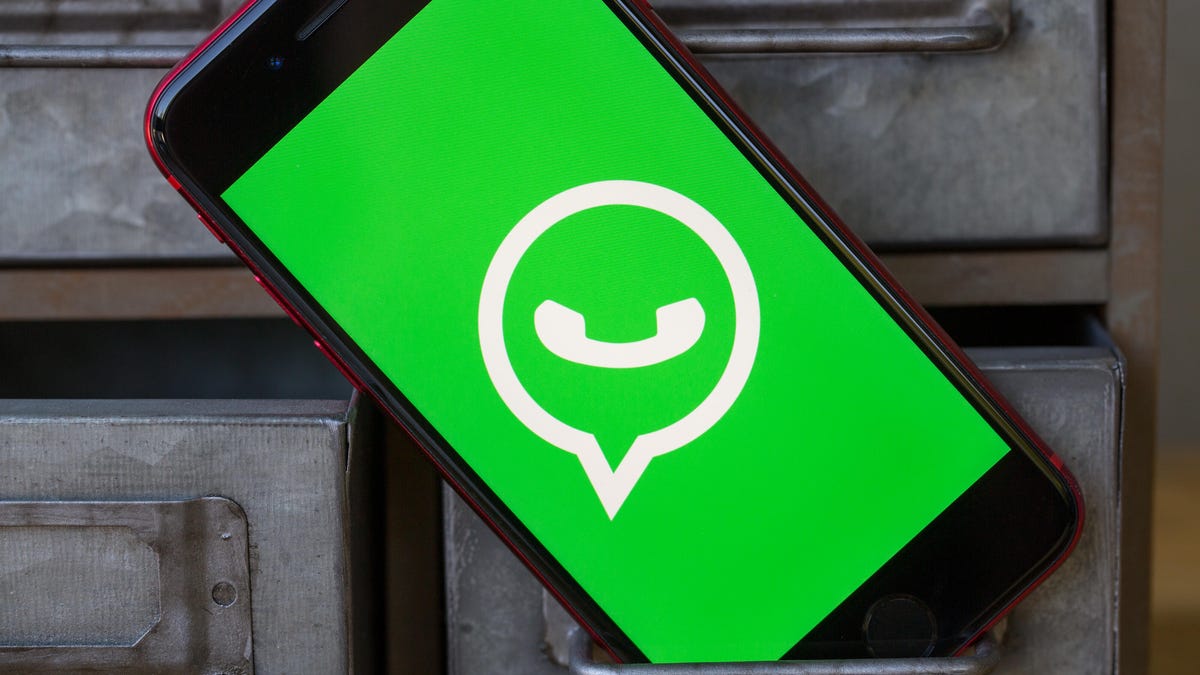WhatsApp responds to concerns over privacy policy update
This follows calls from concerned users for people to ditch the Facebook-owned app for Signal.

WhatsApp is looking to clarify some concerns about its privacy policy.
WhatsApp this week published an FAQ clarifying the terms of its updated privacy policy and responding to concerns that the firm behind the text-messaging app shares personal information with parent company Facebook . WhatsApp noted the update doesn't affect the privacy of messages with friends and family, and instead relates to messaging businesses through the platform. The company also said the update "provides further transparency about how we collect and use data."
WhatsApp emphasized that neither it nor Facebook can see users' private messages or hear their calls. WhatsApp also doesn't keep logs of who people message or call, can't see your shared location (neither can Facebook), doesn't share users' contacts with Facebook and keeps WhatsApp groups private, according to the FAQ.
The publication of the FAQ follows calls from privacy advocates, concerned users and, notably, Elon Musk, to ditch the Facebook-owned messaging app and instead opt for encrypted messaging apps like Signal. WhatsApp says personal messages are also protected by end-to-end encryption , but it has for years openly collected certain user data to share with Facebook. Telegram, another secure messaging app, on Tuesday said it surpassed 500 million active users. It noted that in just the last 72 hours, it gained more than 25 million new global users.
Under WhatsApp's privacy policy, businesses have the option to use "secure hosting services from Facebook to manage WhatsApp chats with their customers, answer questions, and send helpful information like purchase receipts," WhatsApp says. If you communicate with a businesses, it can see what you're saying and then use that information for marketing, which could include advertising on Facebook. WhatsApp says it clearly labels conversations with businesses that use Facebook's hosting services.
Additionally, for users who interact with Facebook's Shops commerce feature via WhatsApp, their shopping activity can be used to display related ads on Facebook and Instagram. WhatsApp says this feature is optional and that when you use it, "we will tell you in the app how your data is being shared with Facebook."
Lastly, if you find an ad on Facebook with the option to message a business through WhatsApp and then do so, Facebook could use the way you interact with that ad to show more related ads on the social platform.
WhatsApp head Will Cathcart tweeted on Friday: "With end-to-end encryption, we cannot see your private chats or calls and neither can Facebook. We're committed to this technology and committed to defending it globally."
With end-to-end encryption, we cannot see your private chats or calls and neither can Facebook. We’re committed to this technology and committed to defending it globally. You can read more here: https://t.co/YpR5RaGoW1
— Will Cathcart (@wcathcart) January 8, 2021

